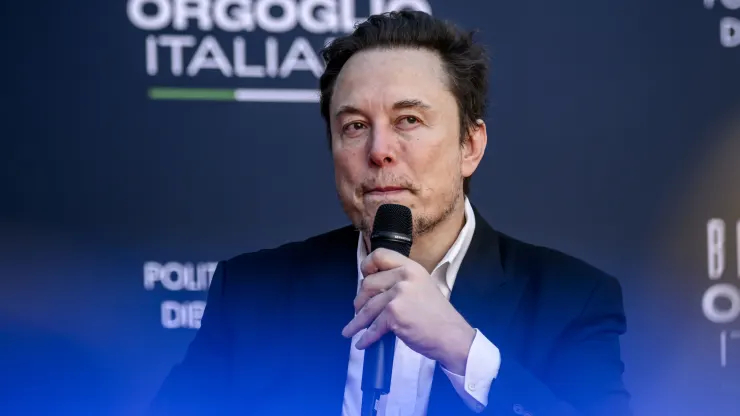SpaceX Starshield Access Demand for US Troops in Taiwan
SpaceX Starshield Access Demand for US Troops in Taiwan by House China Committee

- Introduction
- Background of the Issue
- Overview of Starshield and Its Importance
- SpaceX's Starshield: A Detailed Overview
- What is Starshield?
- The Technology Behind Starshield
- The House China Committee's Demand to Elon Musk
- The Letter's Contents
- The Importance of Starshield for U.S. Troops in Taiwan
- Taiwan's Political Landscape and Its Relevance
- The Historical Context of Taiwan and China
- Current Political Tensions
- The Pentagon's Contract with SpaceX
- Contractual Obligations and Global Access Requirement
- SpaceX's Previous Involvements with the U.S. Military
- Elon Musk's Relationship with China
- Tesla's Operations in China
- Musk's Comments on Taiwan and the Backlash
- The Importance of Communication Networks for Military Operations
- Role of Satellite Communications in Modern Warfare
- Case Study: Starlink's Use in Ukraine
- Potential Implications of Withholding Starshield in Taiwan
- Risks to U.S. Military Personnel
- Strategic Implications for the Indo-Pacific Region
- Global Satellite Communication Networks and National Security
- Comparison with Other Satellite Communication Networks
- The Future of Military Communication
- The Role of Congressional Oversight in Military Contracts
- The House China Committee's Responsibilities
- Historical Precedents of Congressional Involvement
- Public and International Reaction to the Demand
- Responses from Taiwan and China
- Global Perspective on the Issue
- Elon Musk and SpaceX's Response Strategies
- Communication with the House China Committee
- Potential Solutions and Compromises
- Legal and Contractual Considerations for SpaceX
- Legal Implications of Contract Violations
- Precedents and Possible Outcomes
- The Significance of Global Access to Satellite Networks
- Benefits for International Security
- Challenges and Controversies
- Taiwan's Role in the Global Tech Ecosystem
- Taiwan's Contribution to Technology and Security
- The Strategic Importance of Taiwan
- Future Directions for SpaceX and Starshield
- Expanding Starshield's Reach
- Innovations in Satellite Technology
- FAQs
- Addressing Common Questions and Concerns
- Conclusion
- Summary of Key Points
- The Future of U.S.-Taiwan Relations and Space Technology
Introduction :
In a bold move, the House China Committee has put forward a demand to Elon Musk, aiming to secure access for US troops stationed in Taiwan to SpaceX’s Starshield, a satellite communication network tailored for military use. This demand raises questions about contractual obligations, geopolitical tensions, and the strategic importance of communication networks in military operations. With tensions simmering in the Taiwan Strait, the committee's action underscores the critical role of advanced communication systems in safeguarding US interests and personnel in the region.
SpaceX's Starshield and U.S. Troops in Taiwan: A Strategic Demand for Global Communication
In a move underscoring the intricate web of technology, military needs, and international politics, the House China Committee recently issued a striking demand to Elon Musk, the visionary CEO behind SpaceX. At the heart of this demand is Starshield, SpaceX's advanced satellite communication network, tailored specifically for military use. This request, articulated through a detailed letter, emphasizes the necessity for U.S. troops stationed in Taiwan to gain access to Starshield, spotlighting the critical role of global communication networks in modern military operations and geopolitical strategies.
SpaceX's Starshield: A Military Communication Revolution
Starshield represents a significant leap in satellite communication technology, offering enhanced security features beyond its civilian counterpart, Starlink. Designed to meet the rigorous demands of military operations, Starshield's deployment has the potential to revolutionize how armed forces communicate, especially in regions where conventional communication infrastructure is compromised or nonexistent.
The Congressional Call to Action
The House China Committee's letter to Elon Musk is not merely a request but a potent reminder of the strategic imperatives at play. The committee, led by Rep. Mike Gallagher, after a fact-finding mission to Taiwan, discovered the absence of Starshield's operational capabilities for American forces in the region. This revelation has sparked concerns over potential violations of SpaceX's contractual obligations with the Pentagon, which mandate global access to Starshield's advanced communication capabilities.
Taiwan's Precarious Position
Taiwan's geopolitical situation adds layers of complexity to this demand. The self-governing island, which China claims as its own, sits at a critical juncture in the Indo-Pacific's security landscape. Ensuring robust communication networks for U.S. military personnel in and around Taiwan is paramount, not just for the safety of American servicemembers but for the broader strategic interests of the United States and its allies in the region.
Musk's Balancing Act
Elon Musk's engagements with China, particularly through Tesla's significant presence in Shanghai, illustrate the delicate balance of conducting business amidst geopolitical tensions. Musk's previous comments regarding Taiwan have stirred controversy, highlighting the intricate dance of diplomacy and corporate interests on the global stage.
The Imperative of Global Satellite Networks
The demand for Starshield access underscores the essential role of satellite communication networks in ensuring military readiness and global security. As seen in Ukraine, where SpaceX's Starlink network has been instrumental, reliable, secure communication can be a game-changer in conflict zones. The situation in Taiwan presents a similar imperative for ensuring that U.S. forces have the tools they need to maintain operational effectiveness.
Looking Ahead: Communication, Security, and Diplomacy
The unfolding saga of Starshield in Taiwan encapsulates the multifaceted challenges at the intersection of technology, military needs, and international politics. As SpaceX responds to the House China Committee's demands, the broader implications for global security, diplomatic relations, and the future of satellite communication technology remain in focus. With the strategic importance of Taiwan in the Indo-Pacific region, ensuring access to advanced communication networks like Starshield is not just a matter of contractual compliance but a critical component of international security architecture.
FAQs
- What is Starshield, and how does it differ from Starlink?
- Why is access to Starshield important for U.S. troops in Taiwan?
- What are the potential implications of SpaceX withholding Starshield services in Taiwan?
- How does Elon Musk's relationship with China affect SpaceX's operations?
- What role do satellite communication networks play in modern military operations?
- How does Taiwan's geopolitical situation impact U.S. military strategy in the region?
Conclusion
The House China Committee's demand for SpaceX to provide Starshield access to U.S. troops in Taiwan highlights the critical nexus of technology, military strategy, and international politics. As the situation unfolds, the importance of maintaining robust and secure communication networks for the safety and effectiveness of military personnel cannot be overstated. The resolution of this issue will not only impact U.S. interests in the Indo-Pacific but also shape the future trajectory of satellite communication technology and its role in global security.
Summary: Amidst escalating tensions in the Taiwan Strait, the House China Committee has taken a significant step by demanding Elon Musk ensure that SpaceX’s Starshield satellite communication network is made available to US troops in Taiwan. This demand stems from concerns that SpaceX may be violating its Pentagon contract, which mandates global access to the Starshield technology, potentially compromising the safety and operational efficiency of American servicemembers in the region. The move highlights the intricate web of geopolitical interests, technological capabilities, and military preparedness that define the contemporary security landscape in the Indo-Pacific.
House CCP Letter to Elon Mu... by rebecca.picciotto
you can donwload it House CCP Letter to Elon Musk
What's Your Reaction?






















